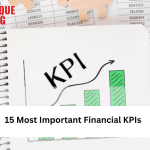In the modern world, artificial intelligence and machine learning systems have taken over and become necessary features in almost all industries, regardless of sector. This is especially true for the financial sector, as artificial intelligence is perfectly designed to gather and process financial data.
To successfully implement an artificial intelligence system, it is essential to consider its final goal or outcome. These systems can automate simple and tedious processes to relieve employees' responsibility so they can focus their energy elsewhere, but they can also replace entire departments within an organisation if programmed effectively. To tailor a system to meet the organisation’s needs, those involved need to have a full understanding of the types of artificial intelligence and machine learning systems.
When preparing for system implementation, extensive planning, designing, and monitoring of its progress are also necessary. Integration may need to happen over a period of time to ensure the organisation can carefully adjust to the new technology. Close monitoring post-implementation will also make mistakes easier to notice before they have a chance to cause significant issues.
Upon completion of this course, participants will be able to:
- Understand the rising importance of artificial intelligence and machine learning within the financial sector.
- Develop various artificial intelligence financial systems – credit default predictor, fraud detection system, recommender system and customer segmentation system.
- Evaluate existing artificial intelligence systems to highlight key structures and processes.
- Explain an artificial intelligence system's concepts, principles, and typical architecture.
- Explore the benefits and limitations of artificial intelligence systems.
- Create an action plan detailing goals, objectives, innovative ideas, and project stages.
- Comprehend the risks associated with full reliance on a technology system and balance technology with human influence.
This course is designed for anyone within the financial sector who wishes to incorporate artificial intelligence into their standard practices. It would be most beneficial for:
- Finance Managers
- Accountants
- Risk Managers
- Senior Executives
- Business Owners
- Banking Managers
- Artificial Intelligence and Machine Learning Engineers
- Operations Managers
This course uses a variety of adult learning styles to aid full understanding and comprehension. Participants will review case studies of established financial organisations that utilise artificial intelligence systems to highlight key features and processes.
Participants will be provided with all the necessary tools and equipment to successfully carry out the learning exercises offered. They will participate in a variety of presentations, group discussions, demonstrations, and individual activities. Combining these activities alongside the supplied case studies will ensure full development of the related skills and knowledge.
Day 5 of each course is reserved for a Q&A session, which may occur off-site. For 10-day courses, this also applies to day 10
Section 1: Fundamentals of Artificial Intelligence
- Defining what an artificial intelligence (AI) and machine learning (ML) system is.
- Reviewing the typical uses of an AI system and recognising popular already established in the financial sector.
- Assessing the concepts, principles and structures of an AI and ML system.
- Common applications used to create AI systems – python, R and WEKA.
Section 2: Machine Learning
- How machine learning functions are integral to an AI system.
- Describing the different features of an ML system – independent and dependent variables.
- Data clustering, classification, and regression and how these should be used.
- Comparing the two main types of ML system – supervised and unsupervised.
- The benefits, limitations, and ideal uses for supervised and unsupervised systems.
Section 3: Deep Learning and Neural Networks
- Understanding the structure and purpose of neural networks.
- How neural networks and deep learning use data inputs, weights and bias to mimic how the human brain processes information.
- Integrating deep learning into AI and ML systems.
- Programming deep learning and neural networks to process and organise financial datasets appropriately.
Section 4: Preparing for AI Implementation
- Establishing goals and objectives for the AI system.
- Automating tedious processes with AI to maximise productivity and better utilise resources.
- Creating action plans detailing the entire creation process from designing to post-implementation monitoring.
- Encouraging openness to change within the working environment.
- Exploring the ethical challenges faced with integrating AI into an organisation.
Section 5: Developing Financial Oriented Systems
- Understanding the natural system language and generation.
- What type of system is most suitable for processing and presenting financial data.
- Evaluating the associated risks with automating financial processes.
- Balancing an AI system with human employees to remove the potential for human error and biased data.
Upon successful completion of this training course, delegates will be awarded a Holistique Training Certificate of Completion. For those who attend and complete the online training course, a Holistique Training e-Certificate will be provided.
Holistique Training Certificates are accredited by the British Assessment Council (BAC) and The CPD Certification Service (CPD), and are certified under ISO 9001, ISO 21001, and ISO 29993 standards.
CPD credits for this course are granted by our Certificates and will be reflected on the Holistique Training Certificate of Completion. In accordance with the standards of The CPD Certification Service, one CPD credit is awarded per hour of course attendance. A maximum of 50 CPD credits can be claimed for any single course we currently offer.
- Course Code IND02-114
- Course Format Classroom, Online,
- Duration 5 days














